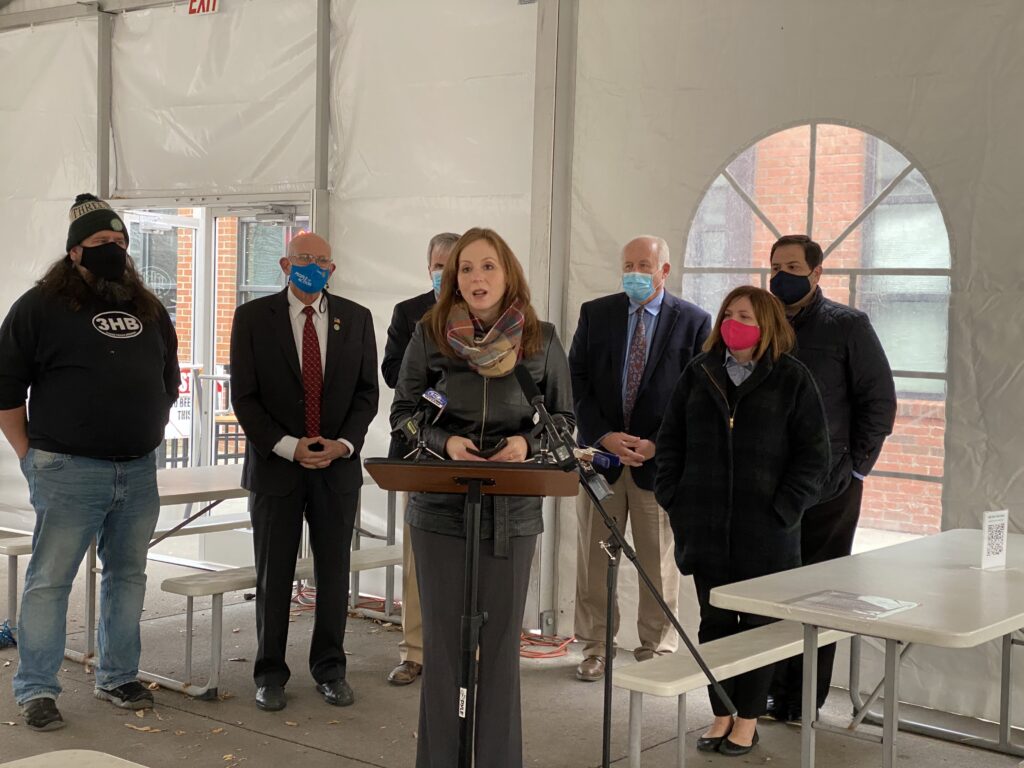
Without discussion or debate, Republicans on the Monroe County Legislature tabled legislation that would provide relief to struggling restaurants. The move happened during Monday’s Agenda Charter Committee meeting, on a day hundreds of restaurants learned their indoor dining rooms would close indefinitely.
Legislator Rachel Barnhart introduced the measure to cap third-party food delivery service fees more than two weeks ago. Since then, she has sent information to all legislators, offering to set up a meeting with restaurants. None of the Republicans responded to Legislator Barnhart’s offer.
“The Majority Leader read talking points that could have been written by GrubHub in stating his objections to the legislation. He said he wanted to work on a better solution, but his actions suggest otherwise,” said Legislator Barnhart. “We had more than two weeks to work something out. Meanwhile restaurants are staring down the side of a cliff.”
The Democratic Caucus of the Monroe County Legislature supports the legislation, which would temporarily cap the commission fees charged to restaurants by third-party food delivery services, including GrubHub, DoorDash and UberEats. These fees can reach 30 percent or more of the purchase price.
“It’s shocking that on the same day restaurants were told to go takeout-only, the Republicans turned their backs on them,” said Minority Leader Yversha Roman.
During the pandemic, the public has increasingly relied on third-party food delivery service platforms to facilitate online ordering of food from restaurants. Restaurants are faced with a difficult choice: participate in the platforms at a high price or lose out on business. Small independently-owned businesses have little negotiating power to lower onerous commission fees because few third-party food delivery companies exist in the market.
Third-party food delivery services argue caps on commissions hurt their ability to market the restaurants on their platforms and will lead to reduced business for participating restaurants and higher costs for consumers. Legislator Barnhart has argued, however, that the caps are welcomed by restaurants in other markets, including New York City.
“Instead of placing small businesses first, the Republicans chose to listen to the corporate lobbyists who have been circling since I introduced the proposal,” said Barnhart. “I was hoping this legislation would be a starting point for discussion on how to help restaurants. Instead, we didn’t even have a discussion.”